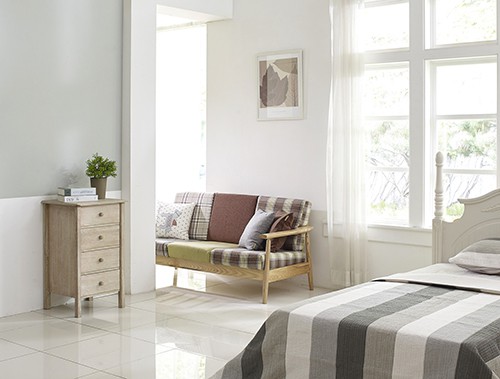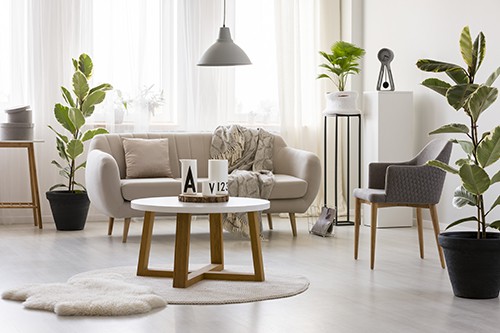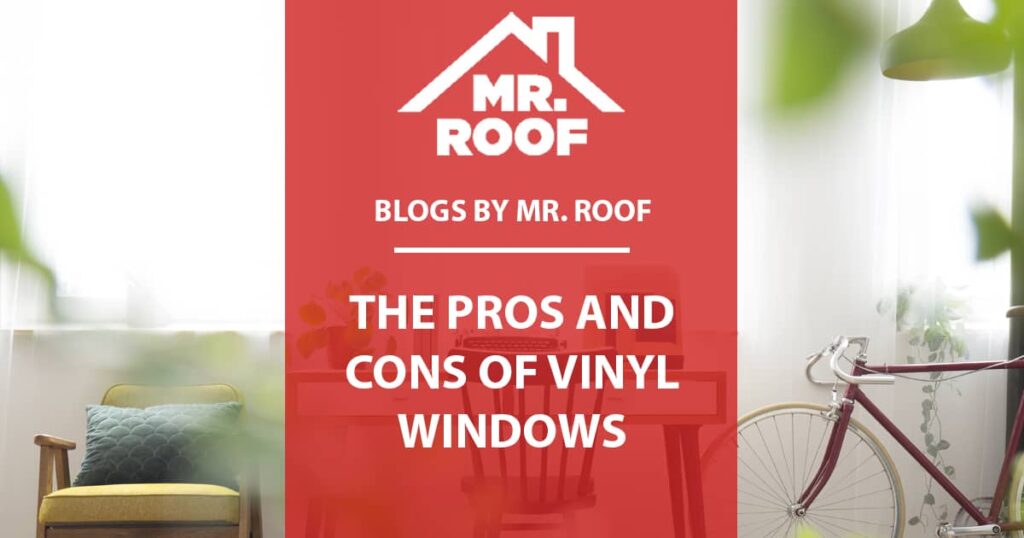Homeowners across the country are switching to vinyl windows – made from a material known as polyvinyl chloride, more commonly known as PVC. There are plenty of reasons why Americans are choosing to upgrade their homes, but the truth is while PVC windows have many advantages, they are not necessarily right for every home or homeowner. Let’s take a look at the pros and cons of vinyl windows, and examine when they work and when they don’t.
Pros of Vinyl Windows
 Windows made from PVC have unique properties compared to other options. For example, vinyl windows are much better insulators than others – meaning they are great for energy efficiency. Better insulation will keep your home warmer in winter and cooler in the summer. Consider how many windows are in your home, and now, consider the fact that your windows are typically the weakest link in your insulation system. This is where switching your windows can be a huge benefit to you as a homeowner – vinyl can have a huge impact on your insulation and save you energy on heating.
Windows made from PVC have unique properties compared to other options. For example, vinyl windows are much better insulators than others – meaning they are great for energy efficiency. Better insulation will keep your home warmer in winter and cooler in the summer. Consider how many windows are in your home, and now, consider the fact that your windows are typically the weakest link in your insulation system. This is where switching your windows can be a huge benefit to you as a homeowner – vinyl can have a huge impact on your insulation and save you energy on heating.
Vinyl is also a cheaper material for your windows than ordinary windows made of wood or plastic. What’s more, that price tag isn’t at the expense of quality. Unlike many other cases, where choosing cheap means choosing flimsy, vinyl windows are surprisingly durable. As an added bonus, they’re also scratch-resistant and sturdy.
Colored Vinyl?
 Colored vinyl windows are also a popular option, but there are a few factors to consider before adding colored choices to your home. The interior of colored vinyl, for example, isn’t always easy to match to the exterior color – due to the limits of what is available on the market. Additionally, not all white vinyl windows can be converted to color, meaning that options are somewhat more limited with colored windows.
Colored vinyl windows are also a popular option, but there are a few factors to consider before adding colored choices to your home. The interior of colored vinyl, for example, isn’t always easy to match to the exterior color – due to the limits of what is available on the market. Additionally, not all white vinyl windows can be converted to color, meaning that options are somewhat more limited with colored windows.
Also, manufacturing warranties are often shorter for colored vinyl than regular white vinyl windows. They can take longer to produce, meaning you will need to wait to install these additions. Sunlight takes a harder toll on colored vinyl, as well, because colored vinyl absorbs far more light than white does.
At the same time, picking the right manufacturer and color can add aesthetic value to your home. It comes down to taste on behalf of the homeowner more than anything else as to whether colored vinyl is worth the investment.
Cons of Vinyl Windows
 Despite their durability and cost-effectiveness, vinyl windows do not always have the same advantages as non-vinyl. As they cannot be repainted, for example, window replacements are the only option for discolored windows. Good vinyl has protection against brittleness and discoloration, but you need to be careful of what you buy in order to have these benefits.
Despite their durability and cost-effectiveness, vinyl windows do not always have the same advantages as non-vinyl. As they cannot be repainted, for example, window replacements are the only option for discolored windows. Good vinyl has protection against brittleness and discoloration, but you need to be careful of what you buy in order to have these benefits.
Real estate professionals often say that vinyl windows are not as valuable an addition to a home as other windows. This is despite the practical benefits of vinyl, but if you are planning to sell your home sooner or later down the road, this is a major factor to consider when it’s time to replace windows.
Vinyl windows, like any other home feature, have their plusses and minuses, and interested homeowners should consider what they want out of their accessories.
If you have questions about your window options, call Mr. Roof to schedule a free consultation!









